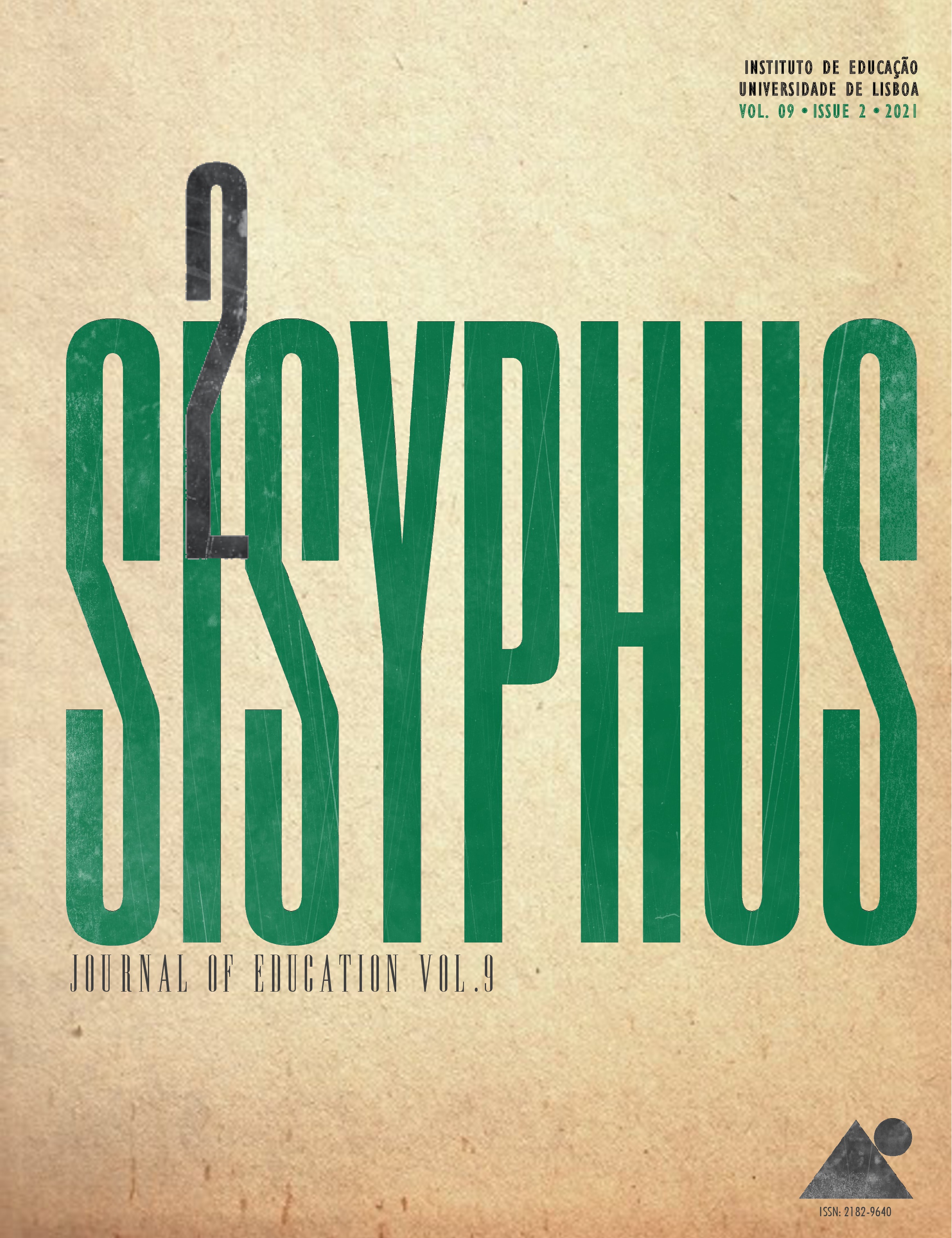Collaboration in Mathematics Teacher Education
DOI:
https://doi.org/10.25749/sis.24924Keywords:
collaboration, mathematics teacher education, training spaces, collaborative groupsAbstract
Collaboration has stood out for its potential in the training of teachers who teach mathematics, for promoting interaction processes between teachers, future teachers, teacher educators, coordinators, among other educational agents, and, therefore, a learning environment for all people involved in those interaction processes. This special issue consists of nine articles that can contribute to a qualified debate about the potentialities and difficulties encountered in the search for a collaborative environment.
Downloads
References
Borko, H., & Potari D. (Eds.) (2020). Teachers of mathematics working and learning in collaborative groups - Proceedings of the 25th ICMI Study Teachers of Mathematics working and learning in Collaborative Groups. Lisboa, Portugal: Instituto de Educação, Universidade de Lisboa.
Chapman, O. (2008). Narratives in mathematics teacher education. In D. Tirosh & T. Wood (Eds.), The international handbook of mathematics teacher education: Tools and processes in mathematics teacher education (Vol. 2, pp. 15-38). Dordrecht: Sense Publishers.
Cyrino, M. C. C. T. (2016). Mathematics teachers’ professional identity development in communities of practice: Reifications of proportional reasoning teaching. Bolema: Boletim de Educação Matemática, 30, 165-187. https://doi.org/10.1590/1980-4415v30n54a08
Jaworski, B. et al. (2017). Mathematics teachers working and learning through collaboration. In G. Kaiser (Ed.), Proceedings of the 13th International Congress on Mathematical Education. ICME-13 Monographs (pp. 261-276.). Springer, Cham. https://doi.org/10.1007/978-3-319-62597-3_17
Oliveira, H. M., & Cyrino, M. C. C. T. (2011). A formação inicial de professores de Matemática em Portugal e no Brasil: narrativas de vulnerabilidade e agência. Interacções, 7, 104-130. https://doi.org/10.25755/int.461
Prediger, S. (2020). Content-Specific theory elements for explaining and enhancing teachers' professional growth in collaborative groups. In H. Borko & D. Potari (Eds.), Teachers of Mathematics working and learning in Collaborative Groups - Proceedings of the 25th ICMI Study (pp. 2-14). Lisboa, Portugal: Instituto de Educação, Universidade de Lisboa.
Robutti, O., Cusi, A., Clark‑Wilson, A., Jaworski, B., Chapman, O., Esteley, C., Goos, M., Isoda, M., & Joubert, M. (2016). ICME international survey on teachers working and learning through collaboration. ZDM Mathematics Education, 48, 651-690. https://doi.org/10.1007/s11858-016-0797-5
Triantafillou, C., Psycharis, G., Potari, D., Bakogianni, D., & Spiliotopoulou, V. (2021). Teacher educators’ activity aiming to support inquiry through mathematics and science teacher collaboration. International Journal of Science and Mathematics Education. https://doi.org/10.1007/s10763-021-10153-6
Downloads
Published
Issue
Section
License
Copyright (c) 2021 Sisyphus — Journal of Education

This work is licensed under a Creative Commons Attribution-NonCommercial 4.0 International License.
Copyright (c) belongs to Sisyphus - Journal of Education. However, we encourage issued articles to be published elsewhere, provided that Sisyphus authorization is asked for and that authors integrate our original source citation and a link to our website.
Author Self-Archiving Policy
Author(s) are permitted to self-archive the final published version in institutional or thematic repositories, and in their personal or institutional websites.
DORA Signer
The Instituto de Educação da Universidade de Lisboa, Sisyphus' Publisher, is a San Francisco Declaration on Research Assessment signer.






